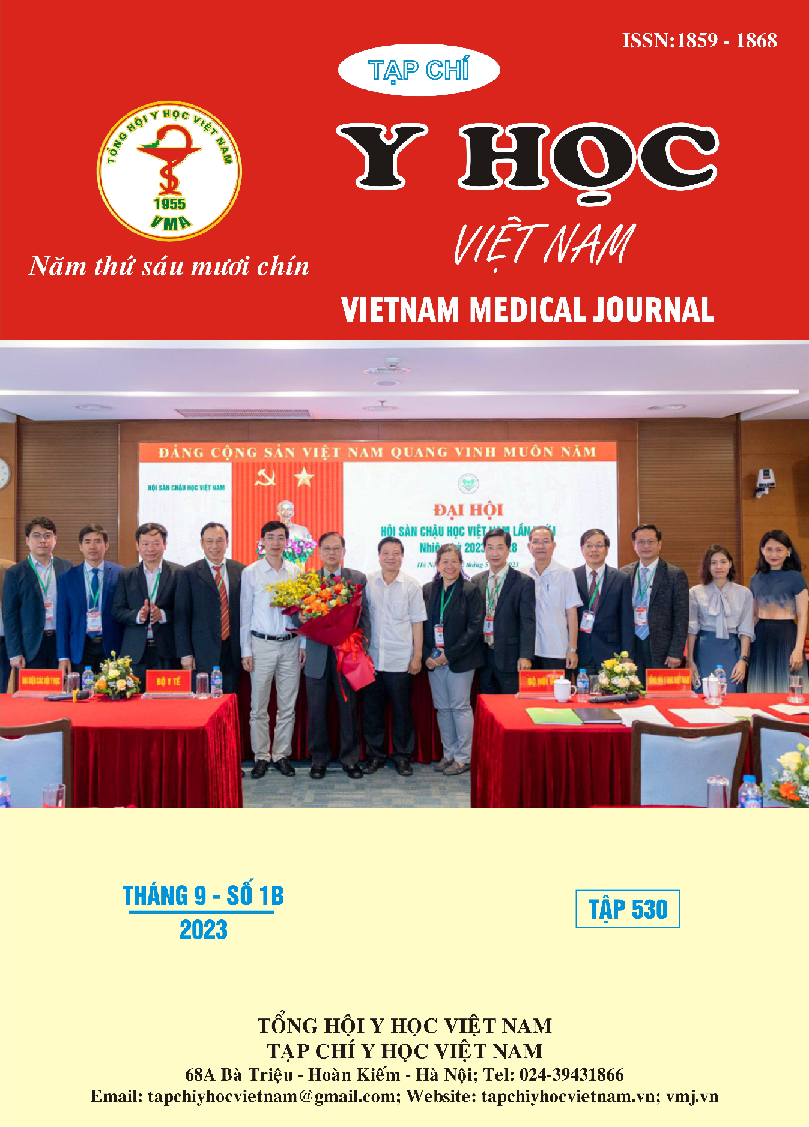EVALUATING THE RESULTS OF EARLY ENTERAL NUTRITION BY PROVIDING 50% OF THE ENERGY DEMAND ON THE FIRST DAY AND REACHING 100% FROM THE 4TH DAY IN PATIENTS WITH SEVERE BRAIN INJURY IN THE DEPARTMENT OF NEUROLOGY AND NEURO INTENSIVE CARE, VIET DUC HOSPITAL
Main Article Content
Abstract
We conducted a study with the aim of evaluating the results of early enteral nutrition by providing 50% of the energy requirement on the first day in patients with severe traumatic brain injury. This is a study using a cross-sectional descriptive method, performed on 60 patients in the Department of Internal Medicine—Neurological Resuscitation at Viet Duc Hospital. The study results showed that 33 patients with severe traumatic brain injury who received early enteral nutrition by providing 50% of their energy needs on the first day and reaching 100% on the fourth day had the increase in nutritive index and immune index after 12 days of care. This finding is similar to the results of the group that had been provided 80% of the energy needs on the first day and reached 100% on the second day. Thus, patients with severe traumatic brain injury may only need to provide 50% of their energy needs on the first day and reach 100% on the fourth day
Article Details
Keywords
nutrition; traumatic brain injury.
References
2. Heidegger CP, Berger MM, Graf S, et al. Optimisation of energy provision with supplemental parenteral nutrition in critically ill patients: a randomised controlled clinical trial. The Lancet. 2013;381(9864):385-393. doi: 10.1016/ S0140-6736 (12)61351-8
3. Harris JA, Benedict FG. A Biometric Study of Human Basal Metabolism. Proc Natl Acad Sci U S A. 1918;4(12):370-373.
4. Boosalis MG, Ott L, Levine AS, et al. Relationship of visceral proteins to nutritional status in chronic and acute stress. Crit Care Med. 1989;17(8): 741-747. doi: 10.1097/ 00003246-198908000- 00004
5. Lee R, Nieman D. Nutritional Assessment. 6th edition. McGraw Hill; 2012.
6. Moore FA, Moore EE. Early Postinjury Enteral Nutrition: Does it make a Difference? In: Vincent JL, ed. Yearbook of Intensive Care and Emergency Medicine. Yearbook of Intensive Care and Emergency Medicine. Springer; 1996:250-259. doi:10.1007/978-3-642-80053-5_22
7. Akar-Ghibril N. Defects of the Innate Immune System and Related Immune Deficiencies. Clin Rev Allergy Immunol. 2022; 63(1): 36-54. doi: 10.1007/ s12016-021-08885-y
8. Huang YC, Yen CE, Cheng CH, Jih KS, Kan MN. Nutritional status of mechanically ventilated critically ill patients: comparison of different types of nutritional support. Clin Nutr Edinb Scotl. 2000;19(2):101-107. doi:10.1054/clnu.1999.0077


